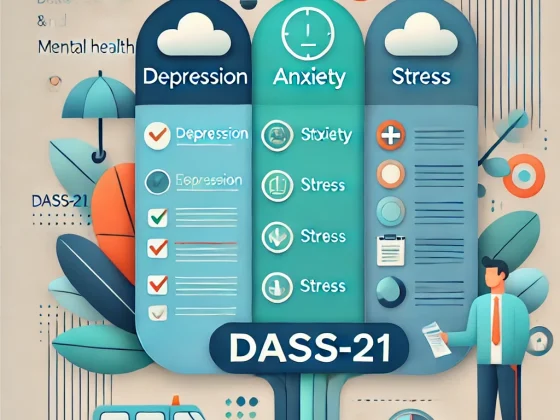Conflict is an inevitable part of life, yet for many, it stirs a deep sense of unease and anxiety, leading us to avoid it altogether. While maintaining harmony can be valuable, consistently avoiding conflict often leaves unresolved issues in its wake and can hinder personal growth, relationships, and overall well-being. Understanding the underlying reasons behind conflict avoidance can be a first step in learning how to approach conflicts in a healthy, constructive way.
The Psychology Behind Conflict Avoidance
Conflict avoidance is often rooted in fear—fear of retribution, rejection, or loss. This fear can become deeply ingrained, shaping how we approach disagreements and self-expression. Many of us, particularly those with a history of people-pleasing tendencies, might prioritise harmony and stability over personal boundaries or self-expression, sacrificing our own needs to keep the peace. This tendency can arise from early conditioning, learning that it was safer to agree, accommodate, or remain silent than to speak up and risk confrontation.
In families or environments where conflict was intense or punished, avoidance becomes a coping mechanism, a means of protecting ourselves from further emotional harm. For example, children who grow up witnessing or experiencing unresolved and damaging conflicts may learn to associate confrontation with instability, anger, or fear. As a result, they develop avoidance behaviours as a survival strategy, effectively shielding themselves from perceived threats of harm or emotional discomfort.
This conditioning is not necessarily limited to openly aggressive environments. Subtler forms of neglect, such as a lack of open communication or encouragement to express emotions, can foster avoidance behaviours. In many cases, the brain reinforces these patterns as a survival mechanism, with avoidance becoming a habitual response to perceived danger. The more we avoid conflict, the more our nervous system is wired to associate confrontation with threat, leading to anxiety, defensiveness, or withdrawal when issues arise. Recognising this connection between past experiences and present-day behaviours can offer an empowering perspective, as it highlights the possibility of change. Although deeply ingrained, these patterns are not set in stone.
Emotional Roots
The emotional groundwork of conflict avoidance is complex and multifaceted. Some common factors include:
- Fear of rejection: Many worry that expressing their true feelings or opinions might lead to rejection or abandonment.
- Anxiety: The prospect of confrontation can trigger intense anxiety, making avoidance seem like the safer option.
- Low self-esteem: Those who lack confidence in their own worth may feel undeserving of having their needs met or their opinions heard.
- Past trauma: Negative experiences with conflict in the past, especially during childhood, can condition us to associate confrontation with danger or pain.
The Hidden Costs
While avoiding conflict may provide temporary relief from discomfort, it often results in increased stress and potential harm to relationships and personal well-being in the long run. Some of the negative consequences include:
- Increased stress and anxiety: Continuously suppressing emotions and avoiding issues can lead to heightened stress levels.
- Depression: The ongoing suppression of feelings may contribute to feelings of depression and hopelessness.
- Relationship strain: Avoiding conflicts can harm relationships, leading to misunderstandings and resentment.
- Physical health risks: Chronic stress from conflict avoidance may lead to physical health problems, such as heart disease and high blood pressure.
- Reduced resilience: Consistently avoiding conflict can compromise an our ability to cope with challenges and setbacks.
The Role of Fear in Conflict Avoidance
Fear plays a significant role in conflict avoidance. Many of us avoid confrontation due to a fear of negative consequences, such as rejection, disapproval, or retaliation. This fear can be so powerful that it overrides the potential benefits of addressing issues directly.
Confrontation Without Fear: A Thought Experiment
Consider is: If you were able to confront someone or something without fear of retribution, would you still choose to avoid conflict?
This thought experiment highlights the extent to which fear drives conflict avoidance behaviours. For many, the absence of fear might lead to more open and honest communication. However, it’s important to note that conflict avoidance is often deeply ingrained and may persist even in the absence of immediate threats. This suggests that overcoming conflict avoidance requires not only addressing fears but also developing new skills and habits for healthy confrontation.
Breaking the Cycle of Conflict Avoidance
Through self-reflection, therapy, or personal growth practices, we can begin to reframe our understanding of conflict, viewing it as a pathway to resolution and growth rather than a threat. Some strategies include:
- Recognising the costs: Understanding the long-term negative impacts of conflict avoidance can motivate change.
- Practicing on smaller issues: Building confidence by addressing minor conflicts can prepare us for more significant challenges.
- Seeking therapy: Professional help can be invaluable in understanding the root causes of conflict avoidance and developing healthier coping strategies.
- Learning assertiveness skills: Developing the ability to express ourselves clearly and respectfully is crucial for healthy conflict resolution.
Questions for Reflection
- In what areas of your life do you find yourself most frequently avoiding conflict, and what are the potential long-term consequences of this avoidance?
- If you could confront a difficult situation without any fear of negative outcomes, what would you address first, and why?
- How might your relationships and personal growth be different if you were more comfortable with healthy confrontation?
Positive Affirmation
“I have the courage to express my thoughts and feelings honestly. My voice matters, and addressing conflicts respectfully leads to stronger relationships and personal growth.”
“I am worthy of expressing my truth and facing conflict with courage and respect. Each confrontation I approach with honesty brings me closer to authentic connections and self-growth.”
By understanding the roots of conflict avoidance and taking steps to address it, we can cultivate more authentic relationships, reduce stress, and lead more fulfilling lives. Healthy confrontation is not about winning or losing, but about fostering understanding and growth for all parties involved.


